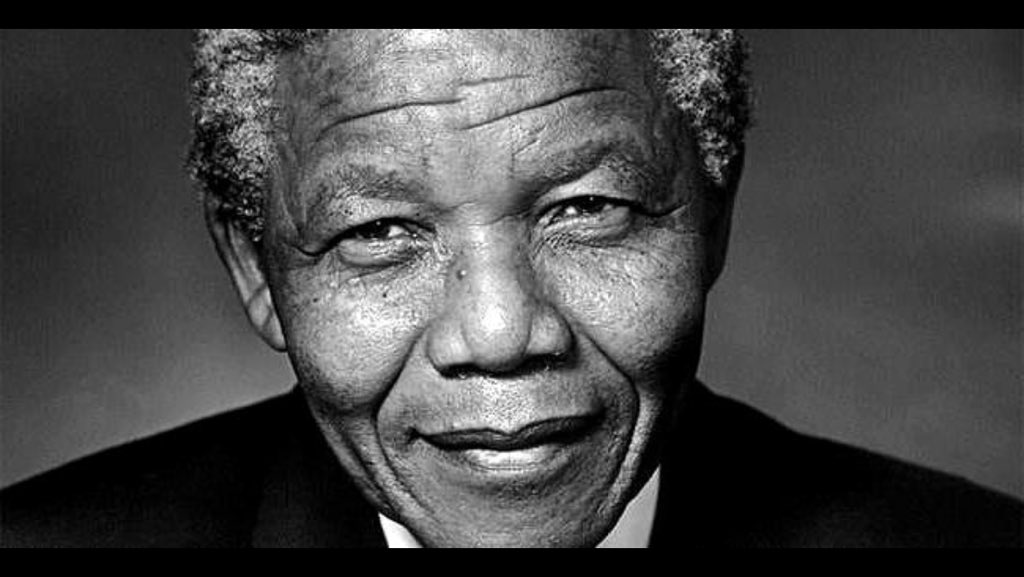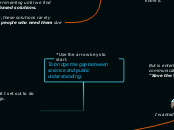To bridge the gap between science and public understanding.
That's what I set out to do 3 years ago.
So I followed our learning process.
1. Listen.
Listen to people in Florida from all ends of the political, economic, and generational spectrum.
Listen to their relationship with facts over the years.
Listen to their process for separating fact from fiction.
2. Understand.
How do they view the truth today?
How do they view scientists today?
Is that different from earlier in their lives? Why?
When do they seek out the truth?
Why do they succeed or fail in finding it?
How do they know if they succeeded or failed?
3. Teach.
From my research, I discovered two distinct mindsets for separating fact from fiction.

2. Active
Looking for a solution.
People are facing a difficult or unknown problem and are in need of a solution.

Google it.
Usually check only one source for information.
Choose the one that sounds "official" or familiar to them.
Believe it if it matches their intuitions or "sounds good."

Ask a friend.
We usually trust our friends more than any other source.
They're rarely experts on our unfamiliar problems.
In some cases, friends will rely on intuition to give the best answer they can.
In others, they'll give you the one they think you want to hear.

Do nothing.
These people genuinely want to find a solution to their problem...
But they don't know where to look for them.
So their problems simply pile up — making them feel more and more helpless.

1. Passive
Looking for entertainment.
Surfing the net, watching TV, and consuming media from a variety of sources.

Amateur Media
(Blogs, podcasts, etc.)
Answers were all over the map about the trustworthiness of amateur content.
"Trustworthiness" depends on the creator and the consumer.

Social Media
(Facebook, Twitter, etc.)
When people browse social media, their irrational, emotional brain is usually in control.
“Intuitions come first, strategic reasoning second.” ― Jonathan Haidt

Professional Media
(NY Times, CNN, etc.)
People typically tune into professional media after work.
They're looking to unwind, not challenge their political views or open their minds.
Media sensationalism has done little to help our understanding of scientific facts...
"Will coffee give you cancer?"
Which would you rather hear?

What this means
Every moment spent on passive mindset activities is a waste.
The last thing someone wants to hear at the end of a long day is, "you're wrong."
Why spend any time trying to reach them when there are people suffering and in desperate need of the truth?
There is a big reason for hope.
There are millions of people with problems that science has already solved.
They have admitted to themselves that they don't know the answers.
They are actively seeking the best information they can find.
The greatest fact-checking app in the world won't change the passive mindset.

Science

Public understanding
Why
Entrepreneurship is really about solving problems.
In today's world, we have
a lot of them...
Science is our greatest method for understanding those problems.
Then experimenting until we find the fact-based solutions.
Tragically, these solutions rarely reach the people who need them due to...
So the gap isn't just between...

Science
The proven solutions to our problems.

Public understanding
All the problems we face.
It's between...
So how do we bridge the gap?
This gap is the cause of unnecessary human suffering.
It's time to put an end to it.

Some scientists have turned to entertainment.

But is entertainment the best way to communicate the value of scientific truth and "Save the World?"
How do we help people find the science-based solutions to their immediate problems?
Don't let facts die in books, podcasts, videos, and blog posts that only speak to the head.

Break them down into clear directions.
And track their progress until the problem is solved.
Continually improve in a never-ending quest to end unnecessary suffering through the application of scientific information.
We must be there for them.
Luckily, there's another mindset in search of the truth.
I wanted to find out.
When you devote your life to learning a subject, you don't remember what it's like not to know it.
*Use the arrow keys to start.

"If you talk to a man in a language he understands, that goes to his head.
If you talk to him in his language, that goes to his heart."
- Nelson Mandela
Speak in solutions, not arguments.
The best ideas don't win arguments.
The best arguers win arguments.
The best ideas produce the best solutions.
So let the talkers try to convince people to change their minds.
While we show them how to master it.
